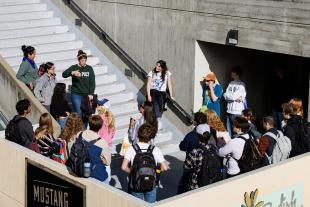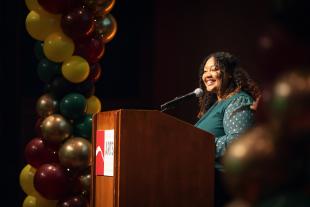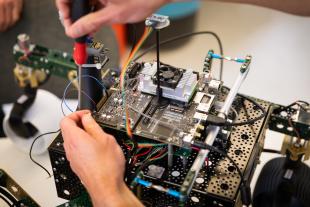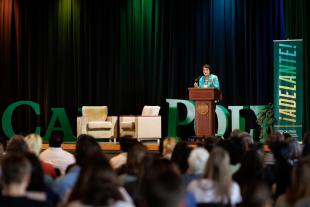'In the Next Generation, We Have a Fighting Chance.' Psychology Professor and MLK Legacy Winner on How Kids Think About Race
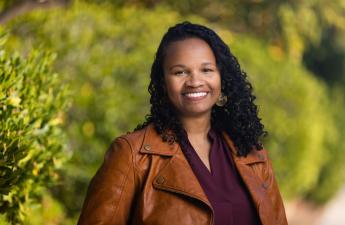
At Cal Poly’s annual MLK Legacy Celebration last month, Professor Amber Williams of the Psychology and Child Development Department was named one of two winners of this year’s MLK Legacy Award. Architecture student and Black Student Union President Chloe Wardrick was also honored. The award, nominated by students and peers, recognizes members of the campus community who “lead with love and hope to create a better campus for all.”
We spoke with Williams about her research on how attitudes about race and equality are formed, and what gives her hope for a more equitable Cal Poly community.
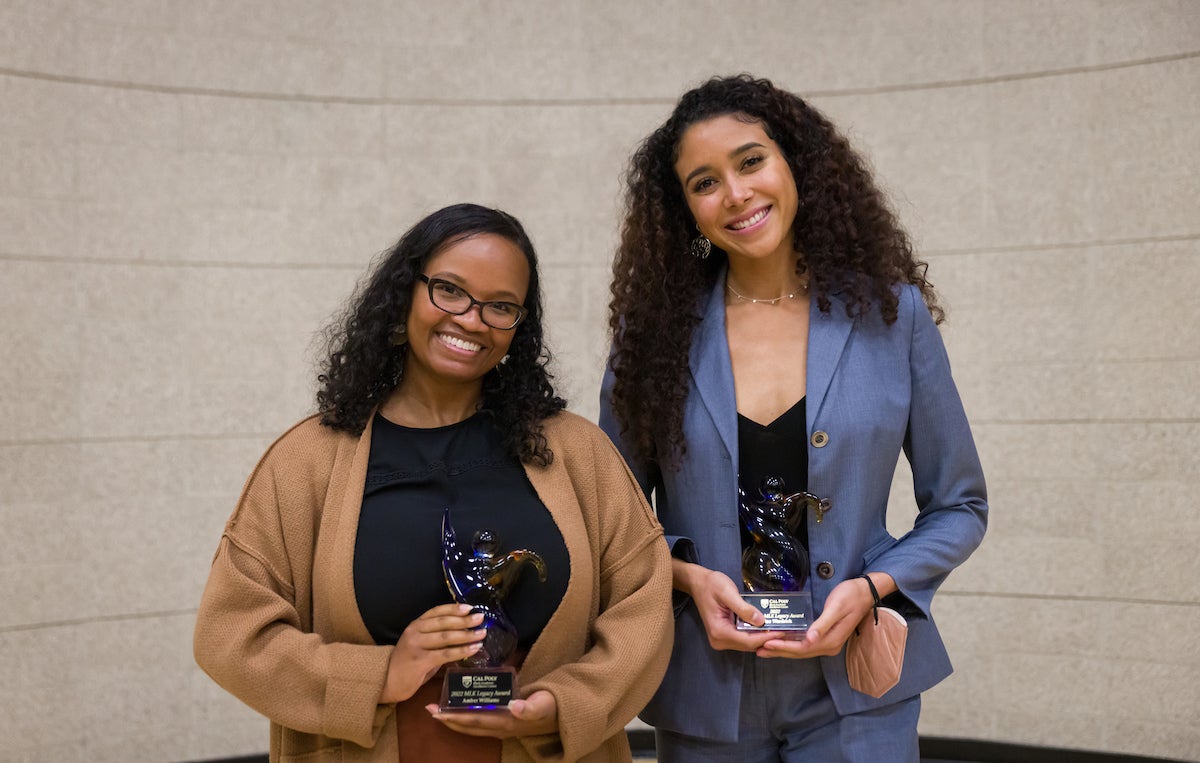
I understand your research was a big part of why you were nominated for the award. Can you tell me about what you're studying?
I study how kids develop ideas around race and racial attitudes — stereotyping, racial socialization, and how parents talk to their kids about issues of race. For example, I look at how kids think about racial categories — are they biological? Are they social? Can someone change their race? And how important is race to kids and adolescents?
More recently I've gotten into research around discrimination and perceptions of discrimination. One of my recent studies examines how people assess the value of a home based on whether it's presumed to be owned by a black family versus a white family.
Another study is looking at children's beliefs about inequality. We tell children often that the world is fair, that you can be anything you want to be if you work really hard. And I wonder how that then translates to how they think about people who don't have as much, particularly because we know that children notice racial inequalities in wealth pretty early on. So they're getting these two conflicting messages. What does that tell them? Children often believe that the way things are is the way they should be, so how do we talk to them in ways that help them to develop more equity-based attitudes, justice-based attitudes and encourages civic engagement in the future?
What are some implications of your findings? How does it connect to what you see among students at Cal Poly?
I think talking to children explicitly about race is a new concept, particularly for white parents who may have rarely talked to their kids about race at all. Because children notice these issues. And certain messages that they're getting from the media, from peers, from society, may lead them to negative stereotyping. I hear students say, “My parents never said anything about race. It was not something we talked about — they just told me to be friends with everybody.”
I teach multicultural psychology, where students are learning things about housing discrimination, redlining, police brutality, the Reconstruction Era — the fact that there are real, tangible elements of structural inequality connected to race — and they're learning a lot of that for the first time as college students.
When you don't have that knowledge, when you don't have that socialization, from parents or other people in the formative years, that can lead to ignorance. In some cases, it might be more passive, like the attitude that “It's not my problem.” And then in other cases it can lead to active negative stereotyping.
If you're advising someone on how to talk to their children about race, what are some important things that parents should bring up?
The most important thing is for parents to not shush their children if they bring it up. There's this idea that race is a taboo subject. But children do notice, things like, “Oh, that person's skin color is different than mine.” You can acknowledge those differences. Yes, that person's skin color is different than yours. Ours is different from theirs and there are people who have lighter skin and people who have darker skin. Exposing them from a young age to those differences, and information about people who are different and being explicit about it is very healthy.
When they're older, around middle childhood, children are being exposed to information on the news, information from peers, and having conversations about discrimination. Reading books that involve information about historical discrimination, written in the right context for your child's development level, is a way to help them understand the background of inequality. It's really important for them to understand that, so that when they see unequal outcomes, you can have an age-appropriate discussion with them about why that is.
And then as they get into adolescence, you definitely want to have more sophisticated conversations around systemic racism and interpersonal racism, and what to do to step in when someone makes a racist comment or causes harm. Help your child understand how to step in and be an upstander and not a bystander to acts of discrimination.
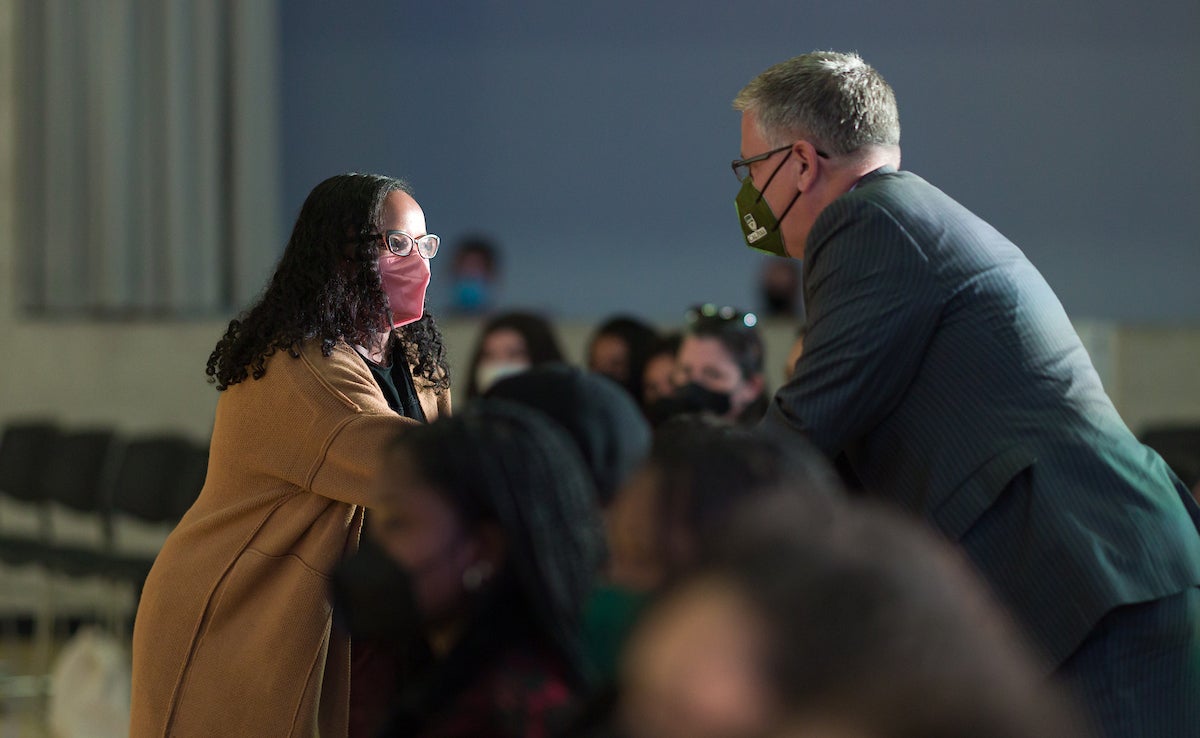
What does it mean to you to win this award?
It feels really surreal. Having my name associated with Dr. Martin Luther King, Jr., is just an unbelievable honor. Thinking about some of the things that people said about me and my work, having the support and respect of my colleagues in a way that they would think that I was deserving of such an honor — I feel incredibly fortunate and blessed to know people who care so much about this work and see it as valuable. This work is often thankless and in fact it can be punishing. You don't make a lot of friends when you're pushing the boundaries on race and inequality, and that can lead to some uncomfortable conversations. So the fact that people appreciate my work — I feel extremely lucky.
What still needs to be done at Cal Poly towards building a more inclusive campus?
I’ve been on a faculty working group assessing marginalized students' use of campus health and wellbeing resources. Hearing those students’ stories made me realize there's so much more to be done on this campus with regard to making marginalized students feel comfortable utilizing the resources that are available to them, and feeling at home in these spaces — that these spaces are theirs as well.
I think particularly there's also this kind of racism that happens when there aren't marginalized people in the room, because people think, “I'm with people who understand.” And sometimes students who disagree with those attitudes feel hesitant to say anything. They don't want to stand out. And so that proliferates that attitude that people think this is acceptable. And I think that is infecting a lot of our student population.
I am hopeful that our recent move to set up ethnic studies as a general education requirement will ensure that students hear some of this information early. By the time they get to my multicultural psychology courses, a lot of them are juniors and seniors. Hearing the perspectives of marginalized communities early on will help shift attitudes on campus about what is acceptable and what is not. But I think that there needs to be a shift in how some students think about who this campus is for, and who has a right to be here.
What are some things that you've seen around the campus that makes you optimistic that it is becoming a more inclusive and equitable community?
The first thing that comes to mind is my classes. I watched my students come to these realizations and it’s really the best feeling to see them realize, “Oh, this is what systemic inequality looks like, and this is how my privilege contributes to it. And I have a part in correcting past damage.” Seeing them think about these things in ways that are inconvenient. They may not have to, especially if they come from a very privileged racial or socioeconomic background, but they are still often deeply affected by this inequality and wanting to pursue what they can do to address it. I’ve had students go beyond the materials we discuss in class, asking for what else they can watch or read to learn more.
That just really fills me with hope that in the next generation, we have a fighting chance. Some things look bleak right now, especially with recent attacks on critical race theory and the idea of teaching children about race, with books about race being banned from elementary and middle schools in my home state of Texas. But I’m hoping that as we teach them in these college institutions, even if it's coming late, that’s still better than not at all.
And then my friends and colleagues who are just extremely supportive, who have taken me under their wing. Just knowing that there are people like that in the world is what fills me with hope.

